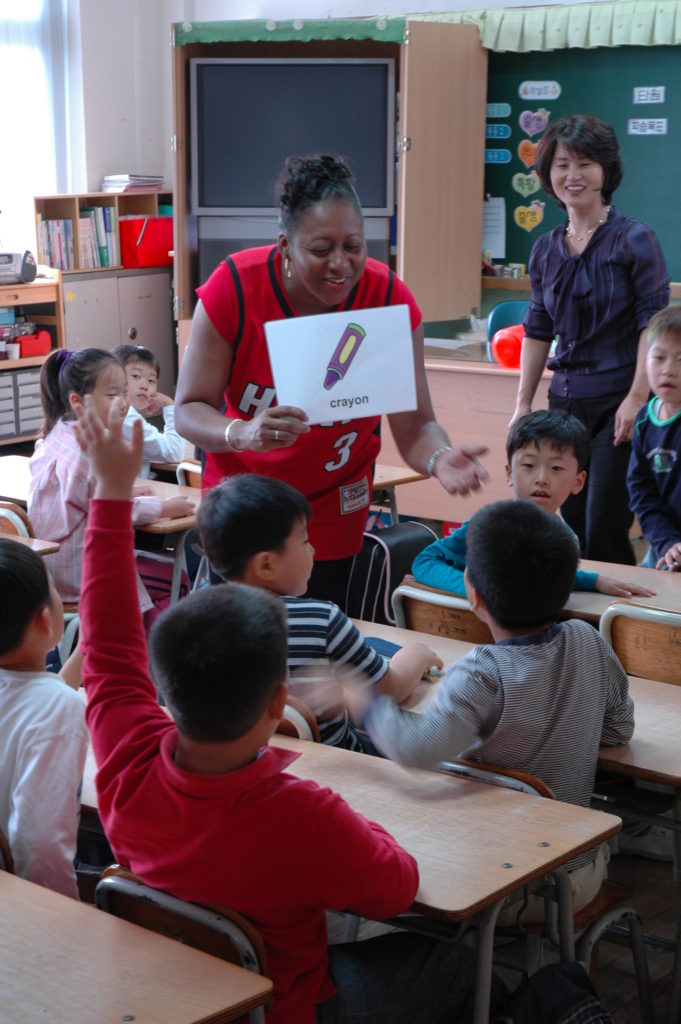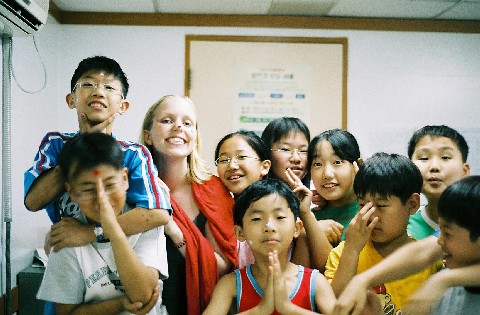Why Do L1 English Speakers Teach in Korea?
Written by Dr. David E. Shaffer
There are an estimated 24,000 native English-speaking English teachers in South Korea. Regardless of how accurate that figure may be, there are a lot! Have you ever wondered what it is that lures people from halfway around the globe to teach English in a country so different in culture and language from their own? Well, I have. Though I too have been an English teacher in Korea for many years, I have often thought that my reasons for coming probably differ from many of the native English-speaking teachers (NESTs) here today. So, out of curiosity, and with an article for this column in mind, I conducted a little survey asking NESTs in Korea why they teach (or have taught) English as a foreign language here. It was a small survey, posted only on my Facebook page, but it provided an assortment of responses worthy of our attention here.
I am certain that for most NESTs teaching in Korea, there is more than one reason why they are doing it, but I did not ask for several reasons in the survey, nor did I ask for a ranking of reasons when more than one was provided. I took the first-mentioned as being the most important reason and the second-mentioned as the second-most important.
Interest in Korea/Asia
Only a couple of respondents said that their interest in Korea brought them here, and only a couple more replied that they came due to their interest in Asia. With the global ubiquity of the Hyundai and Samsung brands, K-pop, and Korean TV dramas, I expected interest in Korea in general to have had a greater influence on NESTs. However, when I look back on my own experience, albeit before clothing stores back home carried items with “Made in Korea” tags on them, it was the U.S. Peace Corps who suggested to me a program in Korea rather than the other way around. I then had to go to a map to determine its location vis-à-vis China and Japan. Korea and its global placement are much better known today.

Enjoyment in Teaching
The most common response from NESTs for teaching in Korea was that they enjoy it. This was of course heartening. One respondent provided more detail, saying that they enjoy the challenge. I think that most will agree that teaching a foreign language can be extremely challenging. And teaching that language in a foreign land with a foreign culture and foreign tongue makes it all the more challenging. Another respondent added that they enjoy helping others. Indeed, everyone in the teaching profession should find satisfaction in helping others (i.e., their students) and seeing them grow. I remember that when I did my student teaching as a college student, I began to have doubts that I wanted to be a teacher. But teaching in Korea provided an immeasurably higher degree of satisfaction and enjoyment.
Employment Conditions
The second-most common reason given by the NESTs for teaching in Korea was the desirable employment conditions. There is a wide range in the degree of attractiveness of NEST teaching positions in terms of salary, teaching hours, vacation time, housing, and other benefits, but university teaching positions can be quite appealing. It is often the case that along with a comfortable salary comes few teaching hours per week, long winter and summer vacations, round-trip airfare, and housing. Several respondents singled out “the money” as the desirable employment condition, but regrettably no one in this small survey mentioned their colleagues or staff. Hopefully, those mentioning “the money” also have additional reasons keeping them in their teaching positions because one who teaches only for the money is likely not doing a stellar job of teaching.
The Living Conditions
A number of respondents cited the good living conditions in Korea as their reason for teaching here. There is no question that living in Korea has become quite comfy in many respects in a few short decades. Its internet access is par excellence. The public transportation system is most convenient at reasonable prices. There are convenience stores, McDonald’s, Pizza Huts, Starbucks, and Costcos everywhere (well, Gwangju does not have a Costco yet). I must say that it was not comfortable living conditions that kept me here in the early years. There was no indoor plumbing; spotty electricity supply; no gas supply; no telephone, television, refrigerator, or microwave in the average home; and no hamburgers, pizzas, or draft beer! But there were many other things to keep a teacher here.

Relationships
Several NESTs responded in the survey that it was because of their Korean spouse that they decided to move to Korea. A couple others said that they had first come to Korea in another capacity, liked it, and later became an English teacher here. While marriage may bring some to Korea, it more often ends up being something that keeps them here: one comes to the country single, finds a mate, starts a family… It is less likely that I would be in Korea today if I had not married after coming to Gwangju.
Rounding Out the List
In addition to the above, there were several other responses, all worthy of mention. One NEST came to Korea to get early-career teaching experience. Teaching in an EFL environment cannot be replicated in an English-speaking country. Another NEST is here because of the respect afforded teachers. And the reason given by yet another was “I like English.”
Integrative Motivation
To my surprise, none of the responses were anything that would be classified as integrative motivation, although I consider it a strong force in keeping me here. I wanted to be able to speak the language to navigate life without a minder. I wanted to be thought of as just another member of the community rather than as the “ugly-duckling” foreigner in the neighborhood. These have kept me here, and to a certain extent, likely still are exerting a degree of influence.
As we can see from this little survey, there are many different but very good reasons bringing NESTs to Korea and keeping them here. NESTs in Korea, like teachers worldwide, are caring individuals, caring about their students, the future of the nation.
The Author
David Shaffer has lived and worked in Gwangju since he came here in the U.S. Peace Corps in 1971. He is vice-president of the Gwangju-Jeonnam Chapter of Korea TESOL (KOTESOL). On behalf of the chapter, he invites you to participate in the teacher development workshops at their monthly meetings. For many years, Dr. Shaffer has been a professor of English Language at Chosun University. He is a long-time member of KOTESOL, and at present he is national president. Dr. Shaffer credits KOTESOL for much of his professional development in English language teaching, scholarship, and leadership. He encourages you to get involved. He is board chair at the Gwangju International Center and also editor-in-chief of the Gwangju News.



